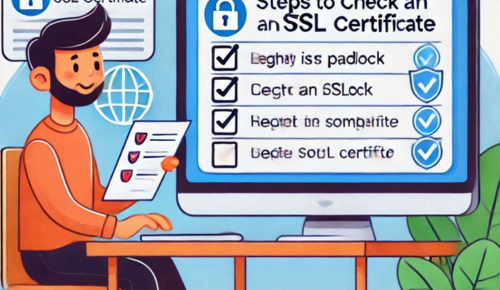Get the most advanced SSL Check here for free.
Have you ever wondered if your website’s SSL certificate is actually doing its job? With cybersecurity threats on the rise, ensuring your website’s security isn’t just good practice – it’s essential for protecting your visitors and your business reputation. The good news? You can check your SSL certificate’s status right now, completely free.
Why Your SSL Certificate Status Matters More Than Ever
Picture this: You’re running an online store, and suddenly your sales drop dramatically. After some investigation, you discover that browsers are warning visitors that your site isn’t secure. Ouch. This scenario plays out more often than you’d think, usually because of an expired or improperly configured SSL certificate.
SSL certificates aren’t just digital paperwork – they’re your website’s first line of defense against cyber threats. They encrypt sensitive data, build trust with visitors, and even boost your search engine rankings. But here’s the kicker: many website owners don’t realize their SSL certificates need regular monitoring and maintenance.
Quick and Free Ways to Check Your SSL Certificate
Let’s cut to the chase – here are several reliable methods to verify your SSL certificate’s status without spending a dime:
First, try the browser method. Simply visit your website and click the padlock icon in your address bar. This gives you basic information about your certificate’s validity. But wait, there’s more to it than that.
For a deeper dive, use online SSL checker tools. These provide detailed information about your certificate’s encryption strength, expiration date, and potential vulnerabilities. They’ll tell you things your browser won’t, like whether you’re using outdated security protocols.
Remember those embarrassing browser warnings we mentioned earlier? They typically appear when your SSL certificate has issues like:
- Expiration (yes, SSL certificates do expire!)
- Mismatched domain names
- Incorrect installation
- Weak encryption standards
Common SSL Problems You Might Not Know About
Here’s something most articles won’t tell you: having an SSL certificate doesn’t automatically mean your website is secure. We’ve seen countless cases where websites had valid certificates but were still vulnerable because of incorrect configuration.
Take mixed content warnings, for instance. These happen when your HTTPS page loads some resources (like images or scripts) through unencrypted HTTP. It’s like having a high-security vault with a window left open – not ideal.
Another overlooked issue is using certificates with weak encryption algorithms. While they might still show the padlock icon, they could leave your site vulnerable to sophisticated attacks. It’s like using a bicycle lock to secure a Ferrari – technically locked, but not nearly secure enough.
Making Smart Choices About SSL Certificates
Now, let’s talk about choosing the right SSL certificate for your needs. Think of SSL certificates like car insurance – while budget options provide basic coverage, premium certificates offer additional features and stronger protection.
What many don’t realize is that premium SSL certificates often come with features like:
- Extended validation for maximum trust signals
- Wildcard protection for multiple subdomains
- Higher warranty values
- Priority support when issues arise
But here’s the truth: you don’t always need the most expensive certificate. Sometimes, a basic SSL certificate from a reliable provider is perfectly adequate. The key is matching the certificate type to your specific needs.
The Real Cost of Cheap SSL Certificates
While hunting for bargains is smart, going too cheap SSL certificates can be risky. We’ve seen businesses lose thousands in revenue because they tried to save a few dollars on security. However, this doesn’t mean you need to break the bank.
The sweet spot lies in finding a reputable SSL provider that offers competitive pricing without compromising on security features. Look for providers that offer regular security audits, strong customer support, and transparent pricing.
Taking Action: Next Steps for Your Website
Ready to check your SSL certificate? Start with these steps:
- Visit your website using HTTPS
- Run a free SSL check using online tools
- Review your certificate’s expiration date
- Check for any security warnings
- Verify your certificate’s encryption strength
If you discover any issues, don’t panic. Most SSL problems are fixable, and with the right provider, the process can be smooth and affordable.
The Bottom Line
Your website’s security isn’t something to gamble with. While free SSL checkers are great for monitoring, ensuring proper protection requires a reliable SSL certificate from a trusted provider. Whether you’re running a small blog or an e-commerce empire, the right SSL certificate is out there – and it doesn’t have to cost a fortune.
Remember: in the world of website security, prevention is always cheaper than cure. Take the time to check your SSL certificate regularly, and when it’s time to renew, choose a provider that balances cost with quality. Your website’s visitors – and your peace of mind – will thank you for it.

